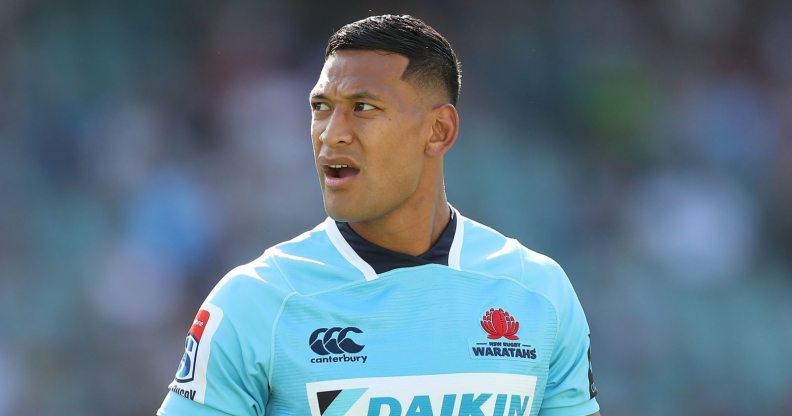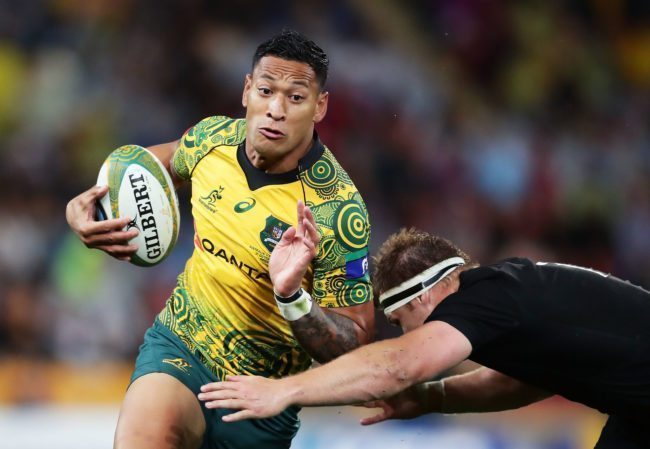Israel Folau could be barred from New Zealand for anti-gay comments, ex-immigration minister says

(Getty)
Australian rugby player Israel Folau could be barred from entering New Zealand after making homophobic remarks, according to a former immigration minister.
The 29-year-old sports star, who plays for the Australian Wallabies, was widely criticised after saying that gay people are destined for hell on his personal Instagram account.
Folau posted an image titled “GOD’S PLAN,” and when an Instagram user asked what God’s plan was for gay people, the fullback responded: “HELL – unless they repent their sins and turn to God.
Tuariki Delamere, who served as New Zealand’s immigration minister between 1996 to 1999, and now works as an immigration lawyer, said that border control officers should refuse entry to Folau under the country’s law for his “bigotry against homosexuals.”

(Getty)
Folau is likely set to travel to New Zealand this year to take part in the Super Rugby competition and other international rugby games.
New Zealand’s Immigration Act states that any person who the immigration minister has reason to believe is, or is likely to be, a threat or risk to public order, or the public interest, is not eligible for a visa or permission to enter the country, Stuff reports.
In comments reported by the website, Delamere said: “There can be no doubt that he [Folau] is a threat to the public interest and a threat to the public order.”
However, the former minister acknowledged that refusing Folau entry could be difficult, because Australian nationals are considered New Zealand residents from the moment they enter New Zealand. This raised the question, he said, of whether the rugby player could be prevented from boarding the plane from his home country.

